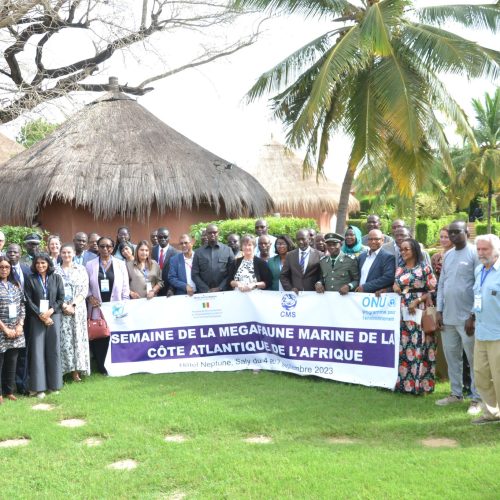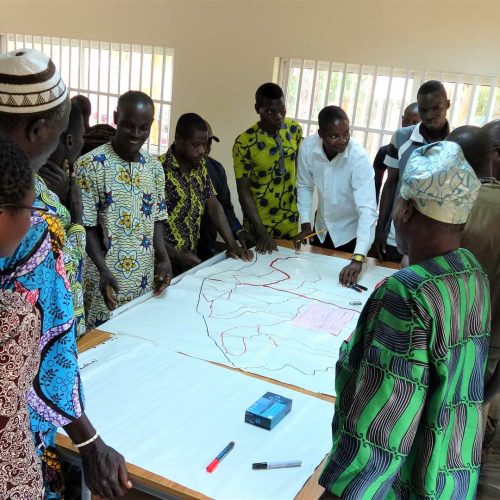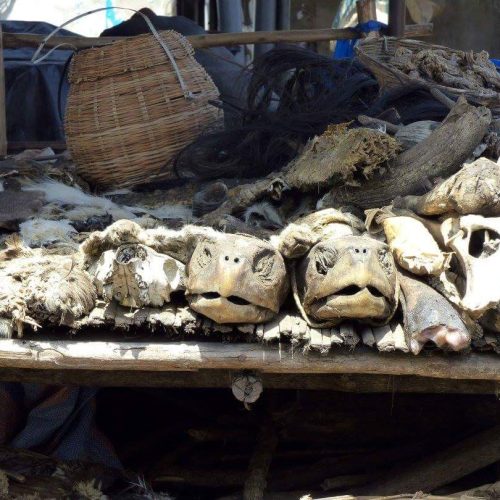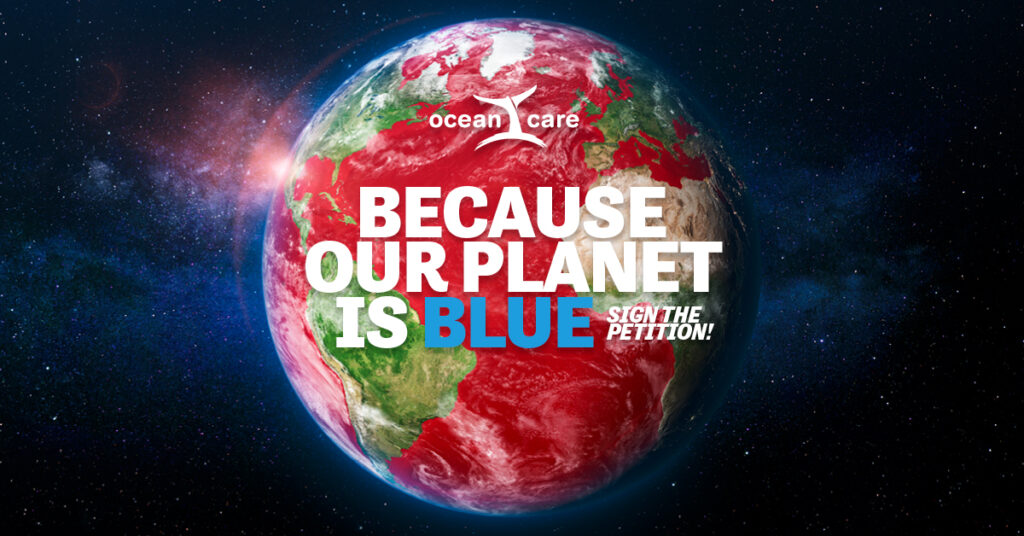Aquatic Wild Meat
A Local Issue
with Global Responsibility
Along the West African coast, which is one of the poorest regions in the world, illegal harvest of protected marine animals – known as Aquatic Wild Meat – is on the rise. The local population uses such products as their own food supply, or for traditional medicine.
One driving factor behind the harvest is the overfishing of West African waters: industrial fishing fleets from Europe and Asia are plundering the region’s fish and are destroying marine ecosystems. Mining, industrial monocultures and climate change have also contributed to the depletion of fish in the Gulf of Guinea, and fishers migrate from other regions to the coast. Increasingly often, local fishers need to go further out at sea, stay longer days and are returning with empty nets and subsequently killing protected animals so that they can feed their families.
As pioneers, Ocean Custody has been tackling this problem already since 2017, in close cooperation with the Benin Environment and Education Society (BEES). This local partner organisation is in dialogue with government representatives and fishing communities in West Africa, and carries out important research, community and educational work.
Protect the ocean with your donation.
one-off
regularly
Where Greed Leads to a Dead End
Driven into Illegality
Marine fishers in West Africa have long managed to sustainably balance coastal fisheries harvest and biodiversity conservation. Due to offshore fishing fleets external to West Africa and internal migration of fishers from inland regions displaced by mining, monoculture, and climate change, fish stocks in the Gulf of Guinea have depleted. With their traditional prey disappearing, for food security coastal communities shift to illegal hunting of aquatic species not formally part of their traditional diet.
Driven to Extinction
The over-harvest of aquatic wildlife includes e.g. dolphins, sea turtles, manatees, sharks and rays. Many of these animals have slow reproduction rates making them unsuitable for intense harvest. Also, many of the species targeted are listed on the International Union for Conservation of Nature (IUCN) Red List of Threatened Species. Most are protected by national and international laws and conventions such as the Convention on International Trade in Endangered Species (CITES) or the Convention on Migratory Species (CMS).
A Pressing Issue
Aquatic wildlife harvest in West Africa involving both food security and illegal hunting issues has been falling through the cracks between environment and fisheries ministries, agencies, and international processes. The problem has now become so pressing that the African Range States to the Gulf of Guinea requested support to develop an Aquatic Wild Meat Action Plan for the Gulf of Guinea.
Our Goals for the protection of marine wildlife

Action Plan for West Africa
As partner organisation of CMS, Ocean Custody together with BEES, the Government of Benin and the Abidjan Convention, is a driving force in developing an Action Plan for the Gulf of Guinea for effective measures against aquatic wild meat harvests and its drivers.

Supporting Local Community
From an established base in Benin Ocean Custody and BEES strengthen small-scale fisheries capacity to build alternative, sustainable livelihoods that secure social resilience to the external drivers of aquatic wild meat harvest and reduce harvest demand.

Increasing Conservation Effort
Ocean Custody and BEES document the extent and causes of aquatic wild meat harvest and facilitate a dialogue amongst government stakeholders, to strengthen regional monitoring and conservation systems.
10 Facts about Aquatic Wild Meat
Waters of West Africa are particularly subject to illegal, unreported, and unregulated (IUU) fishing.
Marine plastic pollution has a direct effect on the delivery of ecosystem services.
Climate change threatens West Africa maritime habitats and its rich and diverse species.
Endangered marine species have been hunted in Benin and Togo for over 20 years.
Ocean Custody is working within the Bonn Convention (CMS) to address Aquatic Wild Meat.
Since 2017, the supply of Aquatic Wild Meat in West African markets is being investigated.
In 2020, CMS Parties agreed to provide greater protection for poached aquatic species.
Aquatic Wild Meat is an indicator that food security is at risk in West Africa.
Marine Protected Areas with a management plan are efficient in preserving biodiversity.
West Africa marine wildlife protection need strong community engagement and communication.
Publications about Aquatic Wild Meat
JOIN US IN SUPPORTING MARINE CONSERVATION
With your donation
Every amount is of value and will help to protect the ocean and its inhabitants both today and in the future.
With your interest
Take a dive into the underwater world: In the e-newsletter you can find out what Ocean Custody is doing for marine life on an ongoing basis.
